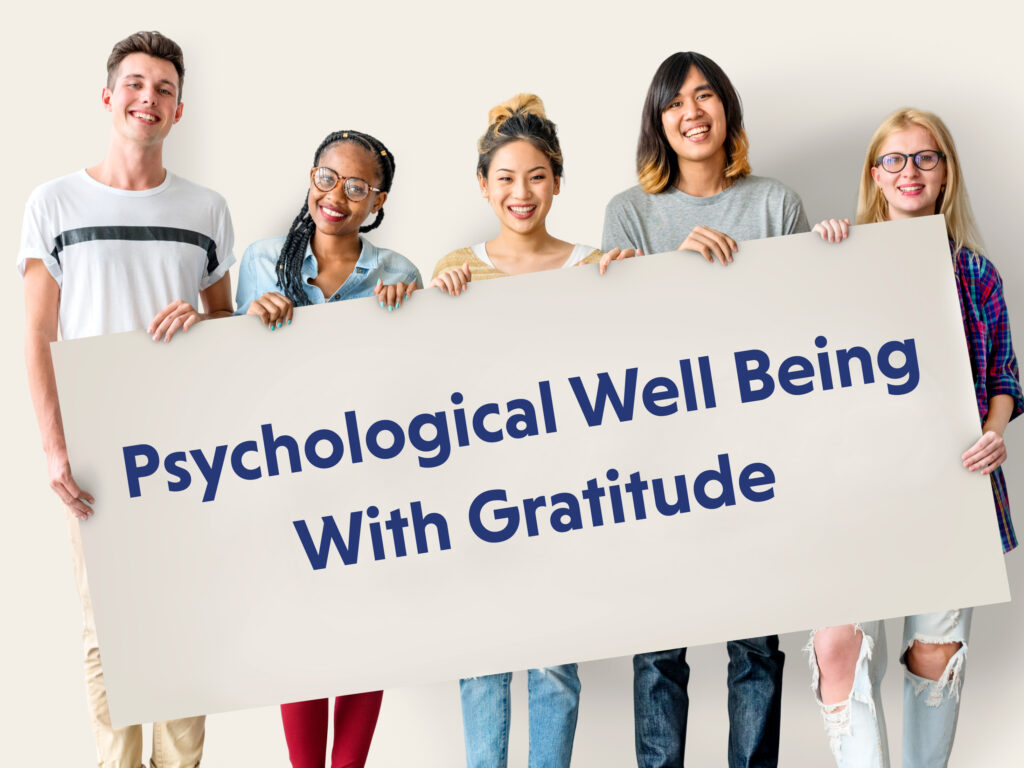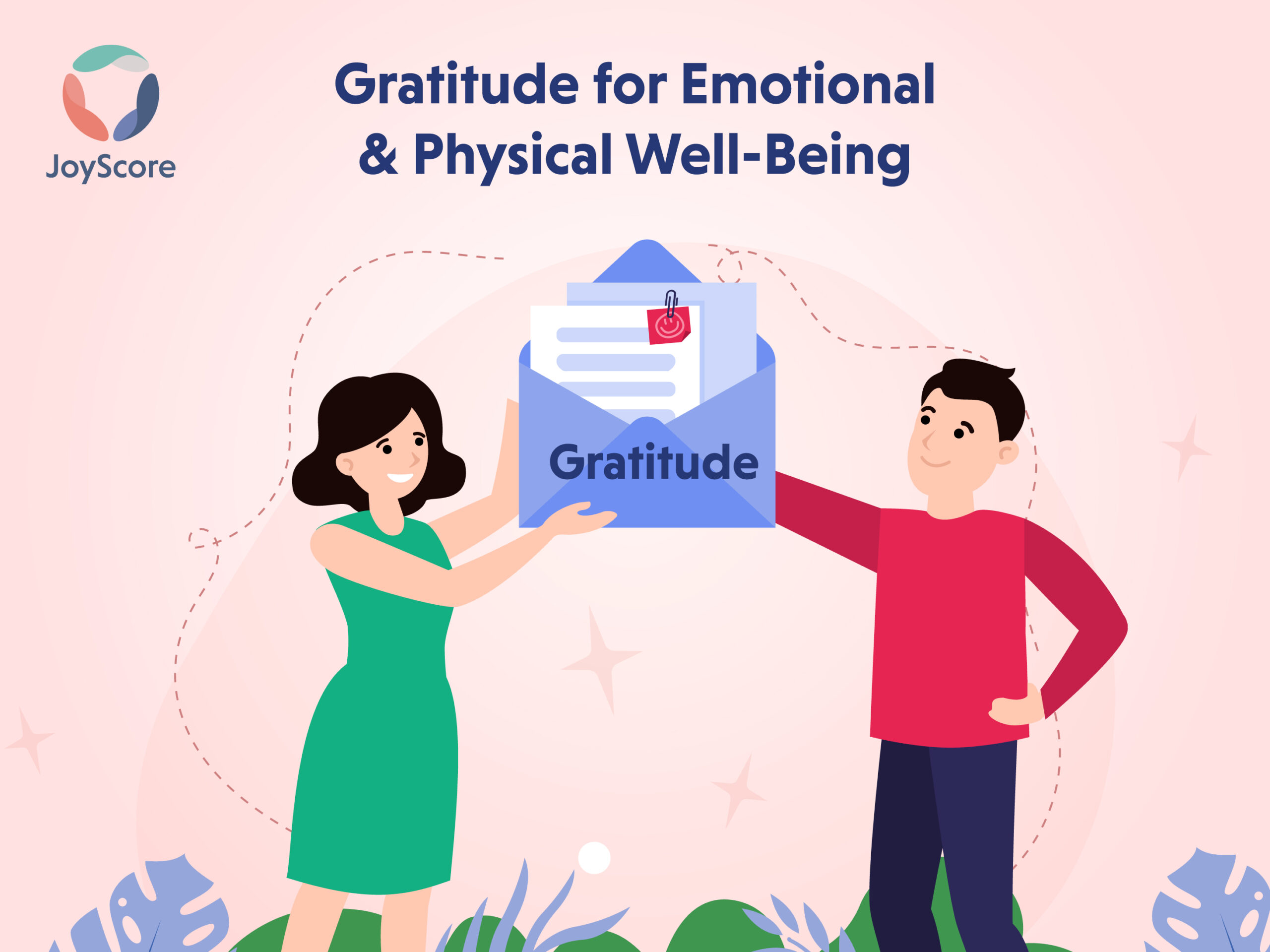Actions speak louder than words: Why gratitude is good for your well-being
Being grateful is usually correlated with elevated happiness and positive emotions within yourself. It allows us to celebrate big as well as small positive and enjoyable experiences that we experience in our daily lives.
Up until now, we have talked a lot about gratitude and what are the ways that you can bring the habit of practicing gratitude into your daily life. But the question still remains that why gratitude is good for you and how it improves our well-being. No one wants to change their daily routine or adopt new habits unless it offers bucket loads of benefits for them.
Well, today, we are here to answer that question for you. Read the article below to find out how gratitude is the key to your emotional and physical well-being.

Gratitude and well-being
Many studies have shown that grateful people tend to be more healthy and positive, and productive when compared. They are less likely to suffer from stress and depression and handle tough and stressful times much better. Gratitude enables people to be happier and more satisfied with life.
Many studies prove the benefits that come from gratitude practice. Although the jury is still out on the level of impact that these practices have on a person, one thing is for sure is that the benefits of practicing gratitude are too good to ignore. Mentioned below are some of these benefits that gratitude practice holds.
Strengthen relationships
Being thankful or humble can not only strengthen your current relationships. But, it also provides you with chances to grow and form new relationships with different people. Saying thank you or being polite are just good manners, and just by exhibiting humble behavior, you can have a better, stronger bond with friends, family, and even with your significant other.
So, whether you send a small gift to the colleague who helped you with work in the office or you thank a stranger for holding the elevator. Recognizing the small gestures of other people can lead to better relationships and new opportunities.

Provides psychological well-being
Many researchers such as Chih-Che Lin have found that people who practice gratitude have a positive influence on their psychological well-being, self-esteem, and depression. Gratitude helps eliminate many levels of toxic emotions, such as envy, frustration, resentment, and regret.
Not only that, but it also helps people to reduce symptoms of depression, stress, and anxiety. Gratitude calms the mind and allows us to be more poised and present at the moment.

Improves self-esteem
We all know that negative feelings like stress, anxiety, and depression are the enemies of our self-esteem. These emotions make us doubt ourselves and our self-worth and make a person insecure and doubtful about its capabilities.
Gratitude is the tool that can pull you out of this hole. Grateful people often possess elevated self-esteem and a better acknowledgment of their self-worth. Studies have also shown that gratitude helps in reducing social comparisons. So, people are less likely to get negatively affected by other people’s accomplishments and are less prone to compare themselves with others.
Gratitude helps in sleep
People who struggle with insomnia and restlessness know the pain of inadequate sleep. Rem sleep is a vital part of good health, and irregular sleep or inconsistent sleep cycle can put our health at risk. It puts strain on the body and increases the risk of developing problems such as diabetes, cardiovascular disease, obesity, and so on.
Gratitude practicing can be the answer to this problem. By providing a calm and composed mind, gratitude helps patients with a heart problem or chronic pain to sleep better and recover faster than other patients.
Improves physical health
Gratitude not only works for the inside but also the outside. Gratitude well-being also keeps your physical health in check and provides improved strength and immunity. Grateful people tend to experience fewer pains and are less prone to catching diseases than other people.
This is because people who are thankful and satisfied with their surroundings are likely to take care of their health and fitness. They monitor their eating habits and indulge in regular exercise. It results in better energy levels, better sleep, and a stronger immune system to fight off any illness or infection.
Increases mental strength
Gratitude can put your mind at ease and provide peace and mindfulness, but gratitude practice also can help in overcoming trauma. According to a study published in Behavior Research and Therapy in 2006, showing gratitude can lead to lower levels of PTSD ( post-traumatic stress disorder).
Being thankful even in your worst times can make your suffering easier. Also, it prevents and helps you from tackling the trauma of the situation.

Connect us with our spiritual roots
Some people might not find it useful, but gratitude allows us to connect on a spiritual level. Practicing gratitude is embedded in many religions. In Christianity, Jesus too expressed his gratitude for his disciples. In Judaism, the first words of the morning prayer are translated as, “I thank you.” Almost all religions encourage us to practice gratitude and give thanks for the things we have.
Performing exercises like gratitude meditation and gratitude journaling can make you more spiritually active. You might come out of the session with a feeling of peace and humble emotion. Believing there is a higher power or a profound appreciation for the universe.
Make us more optimistic and giving.
One of the major objectives for practicing gratitude is to find positivity in everything and eliminate that self-centered tendency in ourselves. Gratitude practice pushes us to acknowledge the good things we experience in our everyday lives and allows us to be more thankful for them. It was seen that grateful people tend to display more positivity and exude happiness and optimism.
It lets us see the “good” in bad subconsciously reassures us that everything will be fine. Moreover, it encourages us to be more giving and practice the phrase “give more than you take.” Grateful people are more likely to share with others and try to help people even at the expense of themselves, and even if the receiver was a stranger.
Try practicing gratitude whenever you have free time. You may be surprised by the benefits that it brings you.



